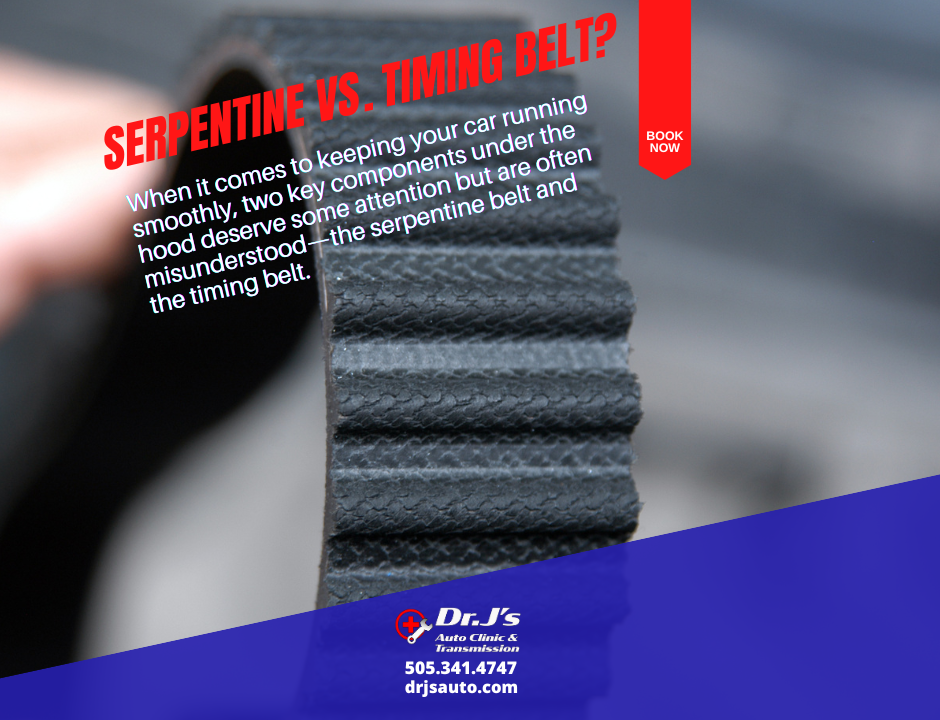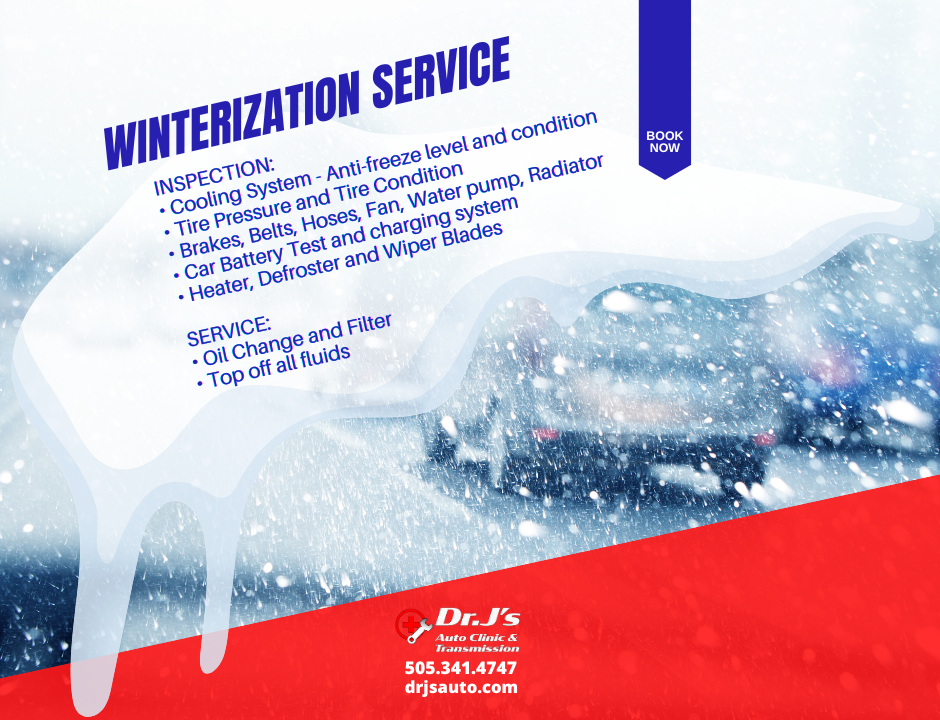


Happy Holidays – Ready for a Roadtrip?
December 12, 2024


Stay Winter-Ready with Dr. J’s Winterization Special
January 15, 2025Your car battery is like the heart of your vehicle; without it, nothing from starting the engine to powering the lights and other electronics is possible. Here at Dr. J’s Auto Clinic, we often get questions about how long batteries last, signs of battery trouble, and what replacement options are available. We’ve put together this handy guide to answer those burning questions and keep you on the road worry-free.
How Long Can You Expect Your Car Battery to Last?
On average, a car battery lasts about 3 to 5 years. However, this range depends on various factors like the type of battery, driving habits, weather conditions, and maintenance. For instance:
- Hot or cold climates can shorten a battery’s life, as extreme temperatures cause wear and tear faster.
- Frequent short trips may also reduce battery life since the alternator doesn’t have enough time to recharge it fully.
- Lack of maintenance, like leaving corrosion unchecked on terminal connections, can speed up deterioration.
The best way to stay on top of things is to know your battery’s age and to have it regularly tested—most auto shops, including ours, offer a quick, free battery health check.
How Will You Know When It’s Time to Replace Your Battery?
Your car might give you a few clues when the battery is nearing the end of its life. Keep your eyes and ears open for these common warning signs:
- Slow engine crank: If it takes longer than usual for your car to start, it might be a sign your battery is weakening.
- Dim headlights or electrical issues: When your battery is struggling, it may not power your car’s electronics as efficiently.
- Clicks instead of starts: If you hear clicking noises when you turn the key, that’s often a sign your battery doesn’t have the power to start the engine.
- Dashboard warning light: Some cars have a battery-shaped light or generic “check engine” light that pops up when there’s an issue.
- Corroded or leaking battery: Check for a white, powdery substance on the terminals or a strange rotten egg-like smell, which could indicate a leaking battery—this is a clear sign you’ll need a new one.
If your car seems to be sluggish or unpredictable, it’s worth having the battery tested to check its remaining charge capacity.
What Are Your Options for Battery Replacement?
When you’re in the market for a new car battery, you’ll want to select the right option for your vehicle and driving needs. Here’s a breakdown of what to consider:
1. Battery Types
Car batteries come in different varieties, like lead-acid batteries (the traditional option for most vehicles) and AGM batteries (Absorbent Glass Mat), which are a bit pricier but offer better performance and longer life. Check your vehicle’s manual or consult us to see which type fits your car.
2. Vehicle-Specific Batteries
Not all batteries are created equal. Different vehicles require different sizes, cold-cranking amps (CCA), and voltage levels. The right battery will depend on your car’s make, model, and engine configuration.
3. Warranties
Ask about the warranty on the battery you’re purchasing. Most come with 2- to 5-year warranties, giving you peace of mind in case something goes wrong.
4. Professional Installation
We highly recommend having your battery installed by a professional. Incorrect installation can damage your vehicle’s electrical system. At Dr. J’s Auto Clinic, we’ll not only ensure proper installation but also safely recycle your old battery for you.
Need a New Battery? We’ve Got You Covered!
At Dr. J’s Auto Clinic, we know that dealing with a failing battery can be stressful—especially when you’re caught off-guard. That’s why we offer fast, reliable battery testing and replacement services so you can hit the road with confidence. If you’re noticing any of the warning signs mentioned above or suspect your battery could be nearing its end, stop by or call us today. We’re here to make sure your car is always ready to go when you need it.




